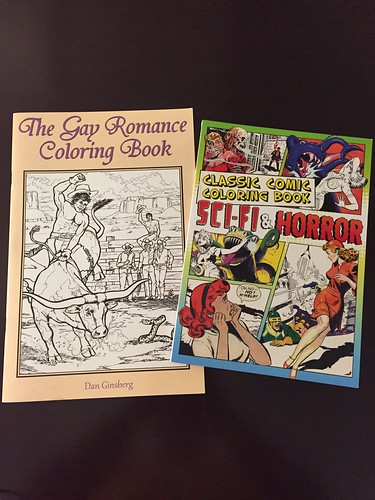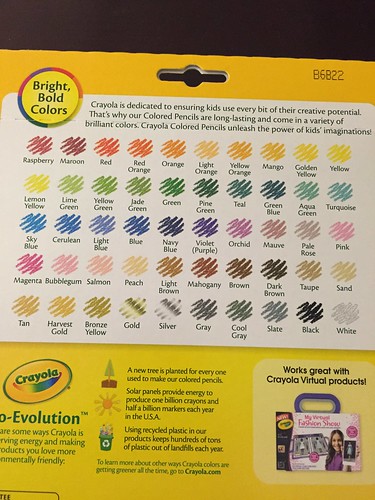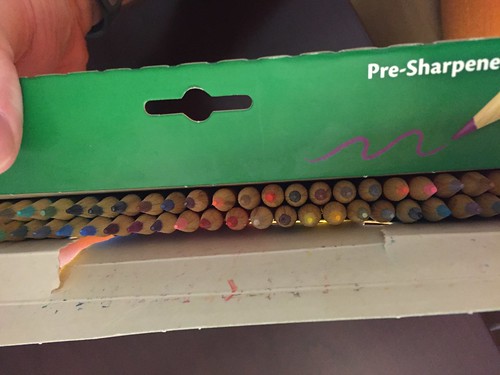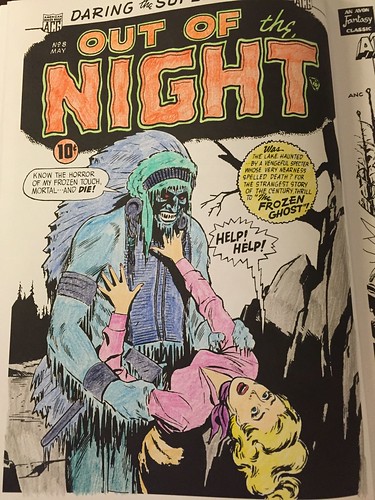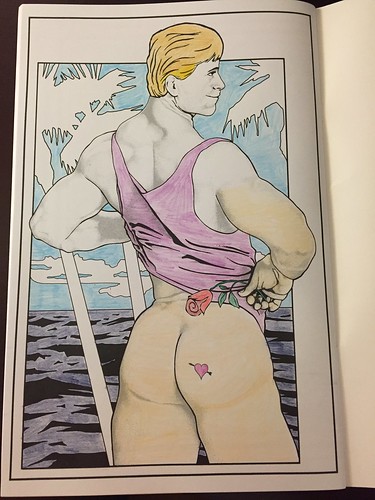I read a slightly higher than usual number of books in July, most likely because
I took that trip to Seattle and had a lot of time to read on planes. Like, a lot. I read three books on the way there, and I think three on the way back, plus all the books for the rest of the month. Unlike
I did in June, July did not have a theme, and was a mixed bag of stuff that looked interesting or just stuff that was on top of the stacks when I went looking for a book.
Here's what I ended up reading:
1) Larry Kramer's
Faggots was a leftover from June that I finished in July, and there was a note inside my copy that hoped the content is better than the title. Oddly, the note is also dated "Christmas, 1978", and I find myself caring more about the people involved in the note than I do about any of the people in this book. Who looked at this in late 1978, when it was published, and thought, "What a great Christmas gift!"? And what did the person who received it think? How did it end up at the library book sale, decades later?
I guessed while reading that this was very controversial when it was published, and a quick look at Wikipedia suggests that I'm right. I'm pretty sure that was the goal, though, since it opens with repeated use of the title word, and then in the first 50 pages takes us to a sex dungeon where the protagonist is peed on by a stranger while having sex with another stranger, then launches right into a discussion of rimjobs. While those might be a punchline on "South Park" now, I'm going to assume they were not quite so widely discussed in 1978, at least not on television.
The book itself isn't that interesting. The main character, Fred Lemish, searches for a man to love and build a life with before his impending 40th birthday. His search takes him across a pre-AIDS-epidemic New York City and surrounding locales, from clubs to parties to Fire Island to bathhouses and back, a graphic crawl of anonymous sex and drug abuse that, again, seems designed more to shock than to inform. When I finished, I felt both slight disgust and also sadness. Everything here seemed a bit of a waste, both in the sense that there was very little "there" there, and also in the sense that the entire world and lifestyle that this book describes died out in the early days of the HIV epidemic. If the characters in this book were real people, almost all of them would now be dead.
2) In Grady Hendrix's
Horrorstor, things are a little bit off at the Cleveland, Ohio Orsk furniture superstore. When staff comes in each day, bookcases are out of place. Glassware is broken. Couches are soiled with foul substances. Sales are down, so the night before a visit from the corporate office Byron, one of the managers, recruits some of the staff to stay overnight to monitor the store, and try to keep an eye on whatever is happening when the lights are off and everyone is gone. It should be an easy nine hours of overtime, but there is suddenly graffiti multiplying on the staff bathroom walls, rats climbing out of the fake kitchens, and the artificial doors in the showroom are open to hallways that shouldn't exist. It's the last shift for the Orsk staff, and they may never leave the store, dead or alive.
This was a fast read, but entertaining. The book design was really amusing, too, and that's generally not something I pay much attention to. Each chapter page is a little catalog shot of a piece of furniture, and as you get deeper into the book the product descriptions start changing to horrible things. I didn't notice it at first until the picture of the treadmill had spikes on the track, and then I went back and looked at the rest and realized that it had gradually built up as the plot did.
3) Patrick Di Justo's
This is what you just put in your mouth? was edu-taining. He takes a lot of household products (not always things you put in your mouth, despite the title), breaks down what's in them, and talks about why it's in there. I learned something in every single chapter, and each entry is only a few pages long, so it's easy to read and take breaks.
Random things I learned:
- A1 Steak Sauce has raisin paste as a base flavor
- One of the main causes of dandruff is a yeast infection in your scalp
- Slim Jims, like yogurt, are partially alive
- Downy Fabric Softener makes your clothes so soft by coating the fibers with a thin layer of lard
- Eggnog producers have been illegally adding yellow food coloring to eggnog for 30+ years with no consequences due to a technicality
From the title and cover, you would probably think this was an anti-science, "OMG YOUR FOOD IS FULL OF CHEMICALS!" book, but it really was pretty unbiased and entertaining.
4) Philip K. Dick's
The Man In The High Castle wasn't what I was expecting. It's listed as science fiction, but it's more like fantasy. The story of the US after it lost World War II and was invaded by Germany and Japan, it contains some sci fi elements but for the most part it's alternative history. It was interesting, but I was hoping for a little more resolution. I picked it up with the intention of watching the series, but now that I've read it I'm kind of indifferent. It's been less than a month and I already don't really remember anything about it.
5) David Mitchell's
Slade House is a charming British house in a walled, terraced garden. Every nine years the door to the garden appears in nearby Slade Alley, and someone finds their way into Slade House, discovering friends, food, and often a party. Those people are never seen again, except by the next person to find their way into Slade House.
The people I sat next to on the plane to Seattle were very excited about this book, and kept asking me questions about whether it was good ("It seems to be so far"), if I'd read anything by him before ("No"), and if I thought it might make a good movie someday ("I guess it could"), but seemed oblivious to the fact that their constant interruptions to ask those questions made actually reading it a struggle.
6) Truman Capote may not have finished
Answered Prayers, but it doesn't feel unfinished. We never find out some of the things that the narrator references, or how some of the narrator's plans turn out, but you could say the same for a lot of Capote's work other than "In Cold Blood". I didn't realize until reading this that Dominick Dunne, whose work I also enjoy, made a career out of copying Truman Capote's, down to modeling his work after some of the same real people and same events.
7) Mark Adams, freelance travel writer, decides to take a trip to a lost land in
Meet Me In Atlantis. Drawing on sources both reputable and crackpot, Adams tries to determine whether the lost city ever actually did exist, and if so, where it was. Traveling around the world to meet experts and tour possible sites, Adams keeps up a healthy dose of sarcasm and skepticism even as he finds himself believing more and more in the lost city.
This was a lot of fun to read, and I have to admire someone who can take a subject so often immediately ridiculed and try to dig some archeological science out of it.
8) At the end of her freshman year of college, Genna's roommate, a black scholarship student at a mostly white female liberal arts college, dies under mysterious circumstances after a long campaign of racial harassment. Fifteen years later, Genna tries to come to terms with her own behavior during that time, and whether her fierce desire to protect her roommate helped or hurt her. What happened to Minette Swift, and why? Who was harassing her? And why does her boyfriend seem so interested in Genna and Genna's father, a prominent civil rights attorney?
Black Girl, White Girl doesn't quite answer all of these questions, but Joyce Carol Oates does a good job of making you wonder.
I find some of Oates' work stronger than others, in that some of it feels unfinished to me (or, in the case of
Carthage finished but terrible, because Carthage is nothing like the town in that book and why base it on a real town if you're not even going to try to make it anything like the town?), but this was a satisfying read. It didn't answer every question, but left a lot of room open for thought and speculation.
9) In Emily St. John Mandel's
Station Eleven, Arthur Leander is a famous actor orbited by a collection of friends, family, and strangers. Kirsten Raymonde, a child actress, is onstage with Arthur the night he dies of a heart attack during "King Lear", and it's also the night that the rapidly lethal Georgia Flu breaks out in Toronto. Within days, civilization as we know it collapses, and fifteen years later Kirsten wanders the ruins of the country with the Travelling Symphony, a troupe of musicians and actors. They move from town to town until they meet the Prophet, a man who may destroy them. In a world of survivors, what else is important besides continuing to survive? What's worth fighting for? And how is Arthur still guiding Kirsten, long after his death and the death of modern civilization entirely?
This was definitely worth reading and worth thinking about. Weeks later, I can still see some of the scenes in my mind.
10) Neil Gaiman's
Trigger Warning was an interesting collection of short stories and poems, both modern and fairy tale. Some of them are a little familiar, but with a slightly unfamiliar spin. Not being a Dr. Who fan, I thought the Dr. Who story was interesting, but lack the larger context to really judge it. I liked most of the work here, though, and in some cases wanted to see them expanded into a novel or at least a novella.
11) Megan Abbott's
You Will Know Me introduces us to promising gymnast Devon, a prodigy who has a serious shot at making the Olympics, bringing prestige to her gym, her gymnastics club, and her coach. It also introduces us to Devon's family, from her overshadowed, quiet younger brother Drew to her gregarious, charming father Eric, a gymnastics booster club officer who spends most of his time wooing sponsors and organizing events, to her mother, Katie, a woman who is almost willfully blind to a number of obvious things about her daughter, her husband, and their friends that she should have seen much earlier but has to be forced to face.
When Ryan, the coach's niece's boyfriend, is killed in a hit and run, questions swirl through their small, privileged gym community. Does Devon know something? Does the coach? Or was it all just a tragic accident that now threatens Devon's chance to make the nationals? As Katie begins to question everything she knows and everything their family has sacrificed for Devon's dream, she has to ask herself if it was worth it, and if there are still more hard choices and sacrifices to be made.
I liked this, but there was a lot that Katie didn't see because she chose not to. Had she actually taken the time to see a bunch of stuff right in front of her face, this book would have moved along a lot quicker. I like Megan Abbott's work enough that I actually had a note on my calendar to go buy this the day it came out, but this is her weakest book. I spent so much of it grumbling for Katie to just open her damn eyes.
12) Jake Logan's
Homecoming is planned to be the first in a series, so I'll need to keep my eye out for the follow up books. It introduces us to Brent Rogers, a soldier in Afghanistan who is a member of the Army's Magi Corps. Trained in healing, force fields, and sensing bombs and mines, Brent struggles to keep the men is his patrol alive until he's sent home for a month by the Army for leave. Now, in Worcester, MA, he struggles to fit in with family and friends who have changed while he's been gone, and a set of senses and reflexes that he doesn't need, or does he? In a hometown crawling with werewolves, vampires, and other unseen threats, is Brent as safe as he thinks, or does danger still lurk around every corner?
I found this enjoyable, but the ending was a little abrupt.
I'm not sure how August is going to look, because August is the busy time in higher education. So far, the regular book I'm reading is slow, and the kindle book I'm reading on the treadmill is full of sex.
I'm not sure what that bodes for the rest of the month.
